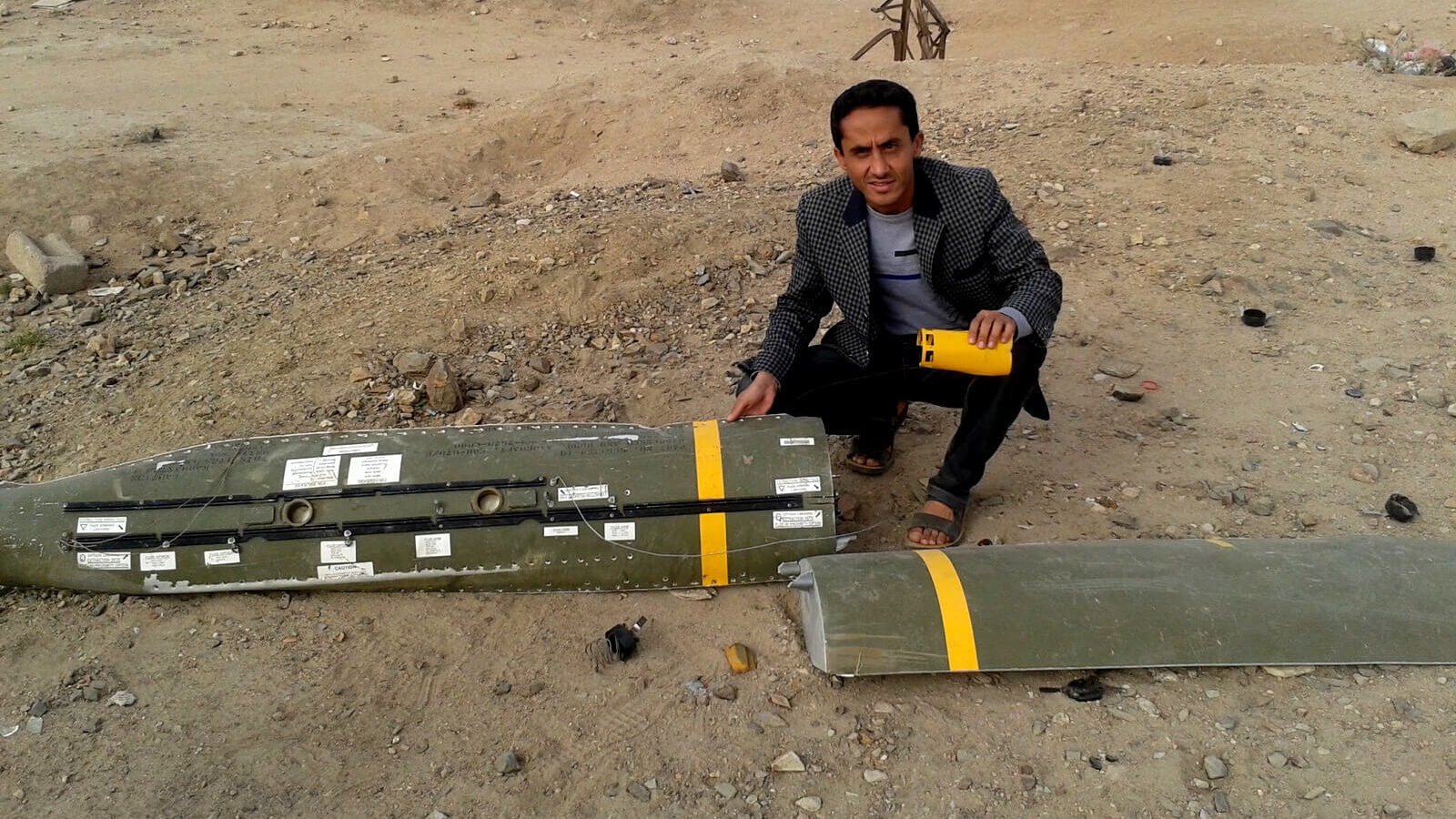On rare occasion a story is unearthed in the mainstream media which demonstrates in stunning clarity how major foreign policy decisions are really made in Washington, especially when it comes to waging perpetual war in the Middle East often under the official rhetorical guise of “protecting civilians”.
A bombshell Wall Street Journal report details a leaked classified memo which shows Secretary of State Mike Pompeo decided to continue US military involvement in the Saudi war on Yemen in order to preserve a massive $2 billion weapons deal with Riyadh.

This should come as no surprise to those aware of the decades long “oil for weapons” relationship that has defined Gulf countries’ ties to the West in modern history, but it’s unusual to have such high level confirmation of the decision-making process almost in real time.
The WSJ summarizes the importance of the classified memo, which its reporters have seen in full:
Mr. Pompeo overruled concerns from most of the State Department specialists involved in the debate who were worried about the rising civilian death toll in Yemen. Those who objected included specialists in the region and in military affairs. He sided with his legislative affairs team after they argued that suspending support could undercut plans to sell more than 120,000 precision-guided missiles to Saudi Arabia and the United Arab Emirates, according to a classified State Department memo and people familiar with the debate.”
The number of civilian casualties cited in the WSJ report — 16,700 killed or injured — is on the very lowest end of estimates to emerge over the past three years of the conflict. Some Yemeni reporters and regional humanitarian organizations have suggested the actual figure is closer to 70,000 killed.
In August the Saudi-US coalition bombing campaign, which has been largely ignored in international media since it began in 2015, was thrust into the American media spotlight after a bus full of school children was struck by a guided bomb produced by Lockheed Martin.
The attack, which killed 40 children, was described by the Saudi coalition — of which the US plays a central role — as part of ongoing “legitimate” military operations against pro-Iran Houthi forces.
Astonishing graphic from @CNN, identifying civilian massacres in Yemen with the bomb makers – Raytheon, Lockheed Martin and General Dynamics. This should be standard in war reporting. Searing images. https://t.co/EZqkSsAri6 pic.twitter.com/NWJvPuN7ct
— Tim Shorrock (@TimothyS) August 18, 2018
The school bus bombing and prior documented attacks on hospitals, funerals, and civilian residents, caused a bipartisan group of Congressional lawmakers to attempt to shut down US support to the Saudi/UAE coalition.
NPR has previously described the US role in Yemen while reporting from inside the country as focused on providing “targeting information, equipment and aircraft refueling to the Saudi air campaign, which has been widely criticized for being indiscriminate and killing civilians in places like hospitals, funerals and homes.”
When earlier this month Pompeo certified before Congress that the Saudi coalition was working to reduce harm to civilians in Yemen — something Congress recently put into effect — is was an obvious sham.
And now there’s overwhelming proof that this was the case. Just prior to Pompeo’s certifying that US support for the Saudi coalition bombing campaign should continue, officials within the State Department argued against it, per the WSJ report:
Most of the State Department’s military and area specialists urged Mr. Pompeo in the memo to reject certification “due to a lack of progress on mitigating civilian casualties.”
That included the State Department’s Bureau of Near Eastern Affairs, the Bureau of Political-Military Affairs, the Bureau of Democracy, Human Rights and Labor, and the Bureau of Population, Refugees and Migration. Their recommendation was also backed by the legal advisers who took part in the policy review.”
But what ultimately tipped to scales in favor of continued support? The WSJ reports the following based on the leaked memo and the testimony of officials close to the matter.
The only group that urged him to fully support the Saudi-led coalition was the Bureau of Legislative Affairs, which argued in the memo that “lack of certification will negatively impact pending arms transfers.”
The State Department’s legislative team said “failure to certify may also negatively impact future foreign military sales and direct commercial sales to the region.”
Pompeo’s official endorsement of the US Gulf allied military campaign came last week in spite of the memo informing Congress that “Recent civilian casualty incidents indicate insufficient implementation of reforms and targeting practices.” And the memo spells out that “Investigations have not yielded accountability measures.”
Thus the Raytheon sale of 120,000 precision-guided missiles to Saudi Arabia and the United Arab Emirates — a deal said to be worth over $2 billion — appears the ultimate decider here.
The certification authorized the Pentagon to continue fueling coalition jets, and other areas of partnership such as intelligence sharing. Ironically this came last Wednesday during the same week the United Nations issued its own statement declaring the Yemen war the world’s “worst humanitarian crisis”.
Top Photo | Hussain Albukhaiti poses with the remnants of a U.S.-made munition dropped by Saudi Arabia on Sanaa, Yemen. Photo | Hussain Albukhaiti


